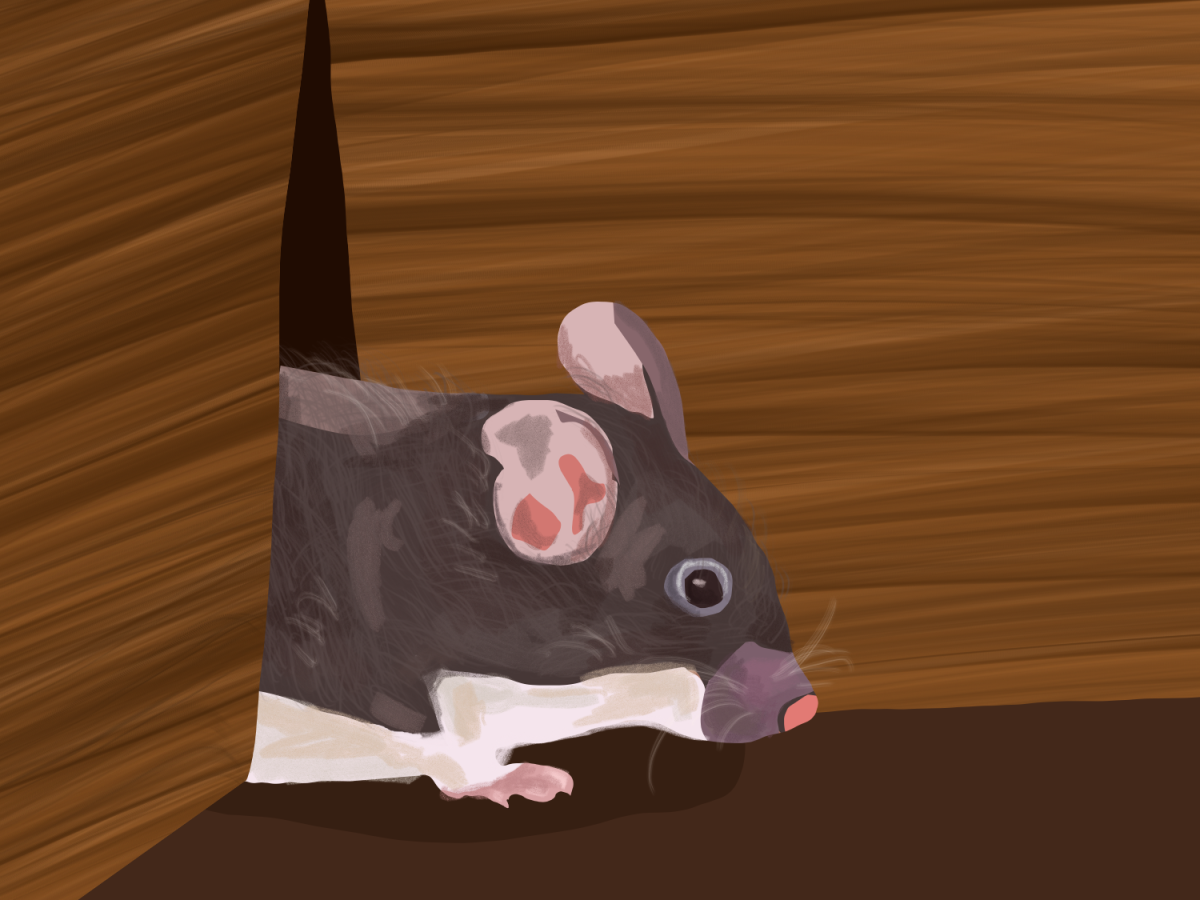As the temperatures drop and the cold creeps in, Northeastern students are preparing for the seasonal return of many campus and city traditions. But Homecoming, tree lightings and holiday gatherings aren’t the only things to expect this winter — students are also bracing for the return of rogue rodents in campus buildings, from residence halls to shared study spaces.
Northeastern students have taken to Reddit to display their dissatisfaction with ongoing mice sightings around campus. Since the semester began, mice have been spotted in the Curry Student Center, Melvin Hall, Kerr Hall, Hastings and Speare Hall, making the older buildings — some built as early as 1899 — notorious among students for their rodent sightings.
As stories and incidents of mouse sightings circulated on Reddit, and then around campus, students expressed their displeasure with the rodents and the repercussions their presence has on them and their education.
“I’ve heard stories about rats in Hastings, Melvin, Kerr and Speare,” said Miles Mu, a first-year business administration and data science combined major. “It’s crazy that we don’t have the resources to stop the rats.”
Northeastern did not provide The News with information on the “qualified company” listed on the university’s building services website tasked with addressing pest problems or if Northeastern tracks how many requests for rodent control NU Facilities receives on a monthly basis.
Finding university mouse-prevention efforts inadequate, many Northeastern students have taken matters into their own hands to protect their spaces from scurrying pests. Matthew Graves, a first-year political science and criminal justice combined major living in Hastings Hall, said he had an encounter with a campus rodent that prompted him to set traps himself.
“There was a rat in my dorm for quite a while. I did not want to wait for the Northeastern staff to put [in] a mouse trap, so I purchased one myself,” Graves said. “Although the trap did not catch the rat, it did leave my room eventually. I’ve seen them on the sidewalks, which concerns me less. It is just despicable to me that there are so many in our dorms.”
Eleanor Woodruff, a first-year student in the Explore Program, said she had to “put towels under her doors so [a mouse] couldn’t get from room to room” in her Speare Hall residence after her suitemates informed her that a mouse had been scurrying around.
The presence of rodents in campus buildings is an extension of the pervasive ongoing rodent problem the entire city of Boston is currently facing. Boston ranked fourth on the list of most rat-infested cities in the United States in 2021.
Students who spoke with The News said they see it as a byproduct of the city’s issue, but also as a reflection of poor housing maintenance on the part of students and the university.
Mu said he felt the excessive amount of rats on campus is coming from “poor waste management and sanitation.”
“They’ve definitely been in Boston for centuries and are surviving off of our garbage and discarded food,” he said. “People really don’t know how to clean up after themselves here, and that’s to the rats’ advantage.”
The city has taken steps to contain the issue and encourage its residents to clean up after themselves, such as increased pest management and access to traps and tools. However, some students say the university has failed to take adequate actions to prevent rodents from entering campus buildings and that the problem underlies a larger housing issue.
“It’s certainly an interesting position to put students in, to have to beg to get decent housing in the first place and then hoping that housing doesn’t have a rodent infestation,” said Kennedy Wiles, a first-year data science major, who described the issue as “ironic.”
Students have expressed discontent with overcrowding and shortage of housing options on the university’s Boston campus in the past several years, which some say exacerbate the issue further.
“People have less space to keep their stuff and specifically their food tidy,” Woodruff said. “In forced triples and doubles, there isn’t as much storage space to put food, so it’s possible that this is drawing the rats out.”
Graves, who lives in Hastings Hall, a century-old residence known among students to house rodents, pointed to the consequences the issue can have on students.
“I believe that the rats impose a serious health risk on students, especially those in Hastings with disabilities,” Graves said. “The fact that this has not been taken care of immediately truly demonstrates how much Northeastern cares about the health and safety of their students. Whatever image they like to show, this is the truth.”
According to the United States Environmental Protection Agency, rodents spread diseases like hantavirus, leptospirosis, rat bite fever and salmonellosis directly to humans through bite wounds, consumption of food or water and breathing dust contaminated by rodent droppings.
While seeing a rat in Curry may not warrant terror for one’s life, it has led some students to express serious concerns.
“Even the rats don’t have good housing,” Wiles said. “That’s why they’re taking over Northeastern’s.”
Editor’s Note: A previous version of this story contained quotes from a Northeastern student, attesting to an incident in which he was bitten by a rodent while in a campus dorm. The source was subsequently contacted directly by the university about the credibility of his claims. Per the source’s request, The News removed the quotes in question at 11 a.m. Nov. 20. The News stands by its reporter, its reporting and its source in this story.










